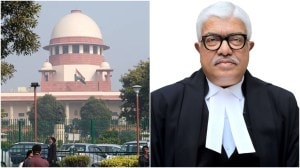New pay package for Central staff
NEW DELHI, July 18: The pay-packet bonanza that was eluding over 40 lakh Central Government employees has finally arrived. The Government h...

NEW DELHI, July 18: The pay-packet bonanza that was eluding over 40 lakh Central Government employees has finally arrived. The Government has accepted a majority of the recommendations of the Fifth Pay Commission and agreed to implement them with retrospective effect from January 1, 1996.
In a meeting of the Union Cabinet chaired by Prime Minister IK Gujral here today, it was decided to maintain status quo on the retirement age of 58 years and the five-day working schedule.
But the Government accepted a recommendation to increase House Rent Allowance (HRA) to 30 per cent of actual pay drawn in A-1 cities and five to 15 per cent in other cities.
All the revised pay scales recommended by the Commission will be put to implementation, with minimum starting pay of Rs 2,540 and a maximum of Rs 26,000. An anomaly committee will also be set up to hear further grievances of employees.
According to the spokesperson, the Government will soon issue a notification to all the Ministries and Departments for modalities for the implementation of the Pay Commission recommendations. Fifty per cent of the arrears of a-year-and-a-half will be given in cash to the employees, while the rest will be put in their Provident Funds (PF). The arrears deposited with the PF cannot be withdrawn for at least two years.
The most striking feature of the bonanza, however, is that the Government has further enhanced the pay scales recommended by the Pay Commission for the Armed Forces, Central Police Organisations, scientific officers and lower grade Government officials. Infantry jawans with matric qualification, who were counted as “unskilled” labourers since Independence, have now been upgraded to “skilled” category.
The Government has turned down the recommendations to abolish overtime allowance and allocate telephone attendant allowance to IAS officials. On Leave Travel Allowance (LTA), the Government has maintained status quo, with an additional choice to the employees to opt for three home town travel reimbursements in a period of four years.
The Government has raised the minimum and maximum amount permissible under the house building allowance. The Joint Secretary level officials now will be entitled to avail deputation allowance of 5 to 10 per cent of their basic pay.
Other allowances, like risk allowance, night duty allowance, deputation allowance, entertainment allowance and motor car advance would be decided upon separately with the approval of the Finance Ministry.
The Government rejected six-day working schedule suggested by the Pay Commission, saying that no perceptible gain is noticed in a switch-over to six days. The number of holidays have been kept at the existing level, although casual leave has been reduced from 12 to 8 days per year to increase the number of working days.
The Govt has accepted the recommendation to abolish 3.5 lakh vacant posts in the Central Government with an aim to downsize the Govt force. It will, however, not be applicable where selection has already been made and where appointment orders are under issue.
The Indian Forest Service officers have been brought on par with the Indian Police Service. Retired Government employees also have much to cheer, as the Government has raised the existing minimum pension/family pension from Rs 375 to Rs 1,220 per month. The ceiling on the amount of family pension will now be 30 per cent. Also, there will be cent per cent neutralisation of cost of living while calculating Dearness Allowance (DA) for pensioners as in the case of serving Government employees. Those pensioners not availing Government health facilities, will be given Rs 100 a month as medical allowance.
Pension for existing pensioners will be consolidated by adding to basic pension, dearness relief on January 1, 1996, the two interim reliefs and fitment weightage of 20 per cent of the basic pension.
For those who retired before January 1, 1986, their pension will be updated first by notional fixation of their pay as on that date, after which consolidation will be done. The definition of family pension will be enlarged to include parents.
While the formula for calculation of gratuity will remain the same, the definition of emoluments for this will include DA on the date of retirement. The existing ceiling, however, will be raised from Rs 2.5 lakh to Rs 3.5 lakh.
For the Armed forces, the pay scales applicable to Brigadier and equivalent ranks in the Navy and the Air Force has been enhanced from Rs 15,350-450-17,600 as suggested by the Pay Commission to Rs 16,700-450-18,050. Their rank pay has also been doubled from the existing level of Rs 1,200 a month to Rs 2,400.
For performing duties in risk prone and hazardous areas, personnel of the Armed forces will receive additional allowances, like Siachen allowance, Submarine allowance and Fighter Pilot allowance, which have been increased from Rs 1,200 to Rs, 7,000.
In peace areas, officers will get cash in lieu of rations in kind. On the request of the Armed forces, the Government has agreed to make no change in the system of supply of rations as per prescribed scales. Also, the Government has decided to continue the existing monthly technical pay and double the present rates to the soldiers, instead of converting it into a one-time lump sum payment.
In Central Police Organisations and paramilitary organisations, the Home Ministry will carry out structural rationalisation to achieve parity with the Delhi Police in the lower level pay scales. The exercise is to be completed within a fortnight and then the constables and other ranks will get higher pay scales.
For scientific personnel, the Government will start a scheme to recognise scientists of national eminence through a rigorous selection process and then will allow them to serve in Government till 65 years and in deserving cases, even beyond. They will be paid a fixed sum of Rs 26,000 a month, in addition to a research grant up to Rs 2 lakh per annum.
FIFTH PAY COMMISSION HIGHLIGHTS
*Revised pay scales to be effective from January 1, 1996.*Retirement age to continue at 58 years.
*Five-day week to continue.
*Improvement in pay scales over the Pay Commission report in four categories of Air Force, police, scientific officers and lower grade government civilian personnel.
*Indian Forest Service officers brought on par with Indian Police Service.*Number of casual leaves reduced to eight days from the present 12 days.*House rent allowance to be 30 per cent of actual pay drawn in a-1 cities and 5 per cent to 15 per cent in other cities.
*Employees allowed to opt for three hometown travel reimbursements instead of the existing one all-India and one hometown LTC in a period of four years.*Deputation allowance of 5 per cent to 10 per cent of basic pay can be availed by officers in the rank of joint secretary and above.
*Minimum and maximum amount permissible under house building allowanceraised from Rs 2.5 lakh to between Rs 6 lakh to Rs 7.5 lakh in minimum category and from Rs 7.5 lakh to Rs 18 lakh in maximum category.*Overtime allowance to continue.
*Abolition of about 3.5 lakh posts lying vacant in Central Government.
*Existing minimum pension/family pension raised.
*Ceiling on the amount of pension to be 50 per cent of the highest pay in the Government and 30 per cent of such pay for family pension.
*Medical allowance of Rs 100 per month to be given to pensioners for treatment.
*Pay scales applicable to Brigadier and equivalent ranks in the Navy and Air Force improved and their rank pay doubled.
*Allowances for defence personnel performing duties in risk-prone and hazardous areas increased substantially.
*Submarine allowance and fighter pilot allowance increased five times.
*Infantry jawans with matric qualifications upgraded into higher pay scale.
*Scheme for recognition of scientists, who will be allowed to serve till 65 years of age and paid a fixed sum of Rs 26,000.
*No holiday to be declared in the event of death of any person other than the incumbent President or incumbent Prime Minister.
Staff threaten strike
The Central Government employees in Delhi today rejected the government decision to implement the Fifth Pay Commission report and threatened an indefinite general strike in September to “compel” the government to concede their “legitimate” demands.
In a joint statement, ten all India organisations of Central Government employees decided to stage demonstrations throughout the country decrying the government decision and described it as “highly unsatisfactory and shocking”.The steering committee of Joint Consultative Machinery (JCM) constituent organisations asked the government employees to organise country-wide demonstrations on July 22.
The organisations, which issued the statement, include All India Railwaymen Federation, All India Defence Employees Federation, National Federation of Telecom Employees, National Federation of Postal Employees and Confederation of Central Government Employees and Workers.



- 01
- 02
- 03
- 04
- 05




























